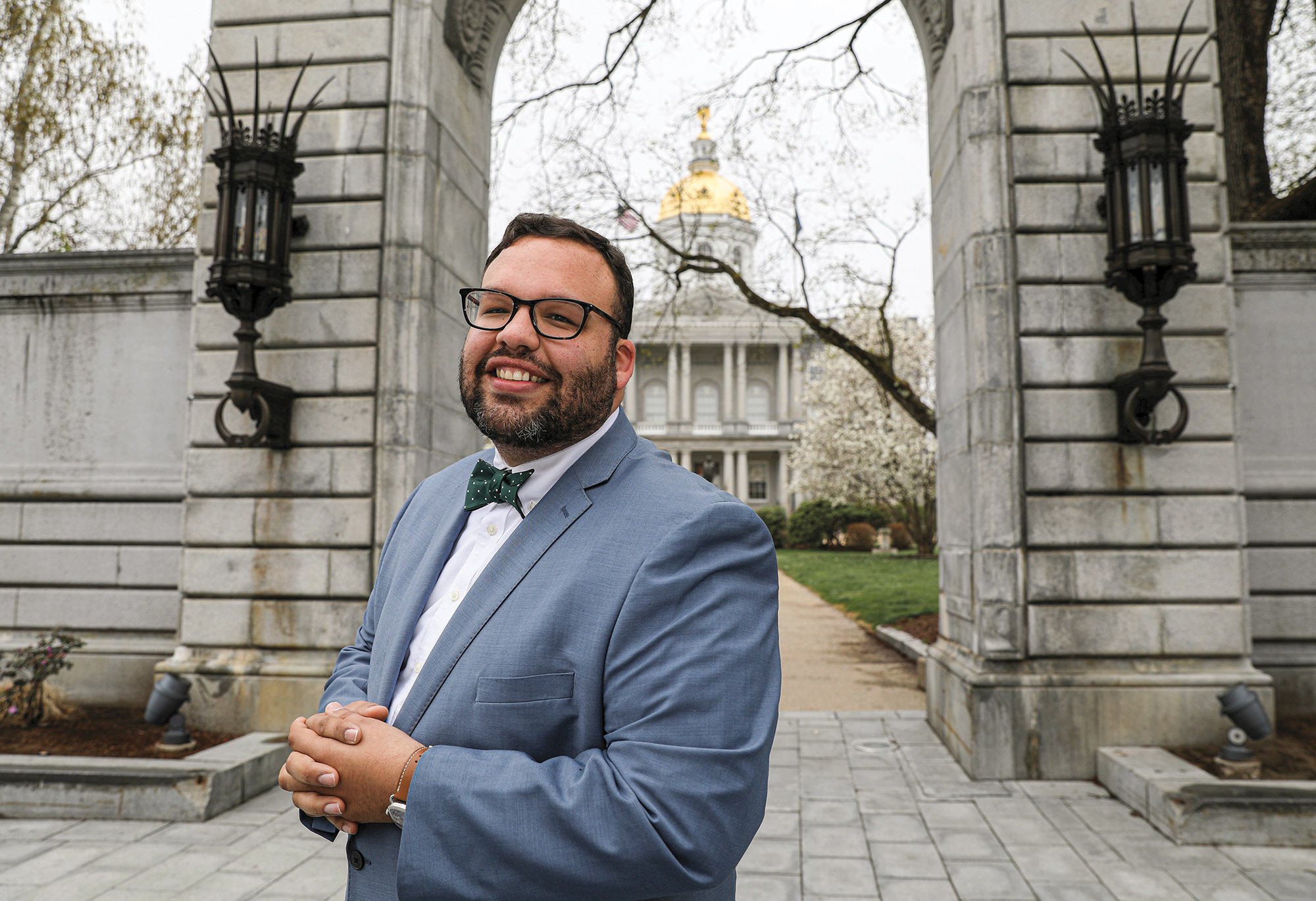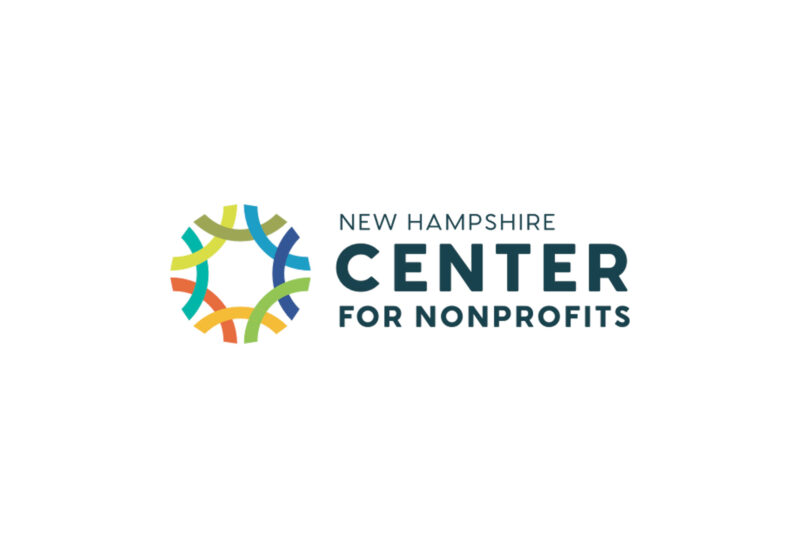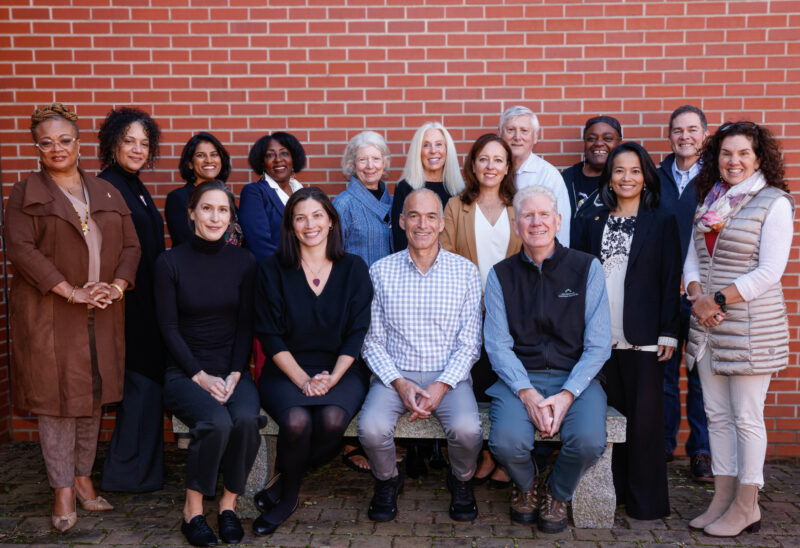Gene Martin of the New Hampshire Fiscal Policy Institute spoke at a Charitable Foundation community event in Plymouth in September. A transcript of his remarks follows.
Good evening. My name is Gene Martin, and I am the executive director of the New Hampshire Fiscal Policy Institute. In my time with you tonight, I want to talk about the importance of public policy — in the lives of people in our state and country — and how the Institute is working to provide data and policy research to build a New Hampshire where everyone can thrive.
In the 1990s, there was a family gripped by substance abuse; the parents split up because of that and several other factors. A boy, his younger brother, and mother ended up living in a homeless shelter. For a few years, that 3rd grader had several things that went wrong through no fault of his own. However, after a while, things started to turn around. After hitting bottom, the boy’s mother focused on changing their family’s lives. Thanks to federal nutrition programs, they had food for their one-bedroom room in that shelter — and the children had free school meals.
In the coming years, thanks to public policies like Section 8, the family moved into an apartment. Fast forward, the parents got back together. A few short years later, they bought their first home thanks to an FHA loan. Six years later, they would drop their son off at college, and again, through the power of public policy and generous philanthropy, he would go on to be the first person in the family to graduate college. Nearly 20 years after moving into Plymouth State University on that warm August day, he is speaking to you tonight — albeit with a few more gray hairs in his beard than he would like.
I wanted to illustrate my personal journey to show precisely how public policy allows a young person to build a life where he and his family are thriving.
It is no secret that the State of New Hampshire faces a confluence of significant policy problems: A workforce shortage. Difficulties accessing childcare. Lack of affordable housing. A dearth of financial support for public higher education. Food insecurity. Education opportunity gaps. Rising health care costs.
To solve the interconnected challenges that Granite Staters face, we need to understand the data to provide the foundational knowledge to examine the headwinds and tailwinds that we face.
As the executive director of the New Hampshire Fiscal Policy Institute — a nonpartisan, independent policy research nonprofit organization based in Concord — and a father to two young children, I spend a considerable amount of my professional and personal life thinking about how decisions made in Concord affect lives in communities across this state. When friends I’ve known since middle school, who like most folks, ignore the ins and outs of state government, bring up one of the issues I mentioned earlier, I am quick to paraphrase a line from the most recent New Hampshire State Senate President. “I love the budget in New Hampshire because it basically is a policy document that says what we all believe in.”
NHFPI aims to add unbiased, high-quality research to the public policy dialogue to ensure policymakers, community leaders, and the general public are discussing policy solutions to our state’s challenges that are grounded in facts.
For example, I feel like you cannot turn around in the state without someone talking about workforce shortages. This challenge is due in part to public policy choices the state has made. Nearly 56 percent of New Hampshire high school graduates who are pursuing a four-year degree go to college in another state, the second-highest rate in the nation, based on the most recent data available. Maine, comparatively, only had 38 percent of their high school graduates leave to attend college. There are a number of potential reasons for this, but chief among them is the fact that out-of-state tuition can be more affordable that in-state tuition. We can’t say with certainty, yet we see that for many of our students, out-of-state tuition can be more affordable than in-state tuition. In FY22, the State of New Hampshire funded just 7.8 percent of the University System of New Hampshire operating budget. Think about that: unbiased data tells us that this is a policy choice, that sends potential future workers fleeing and traps in-state students with crushing debt loads. Right across the border, Massachusetts provides nearly three times the funding support per student than New Hampshire.
Let’s assume that college graduates want to stay in New Hampshire or move back; they are faced with some of the highest costs of housing in the country. This summer, the median home price hit nearly half a million dollars ($499,450,) a 50 percent increase from June 2020. For the quarter of New Hampshire residents who rent, we saw a 25 percent increase in rental costs during that same period. When I look at what my parents paid for their home in 1999 vs. what Erin and I did in 2016 — what previously doubled in 17 years took only three years to double again from 2020 to 2023. Just take a second to think about how this will affect who can afford to move here or live in the state.
As we think about workforce constraints, childcare is another significant challenge. NHFPI works to connect the dots to illustrate how we can tackle our workforce challenges by strengthening the economic security of Granite Staters. Just a few weeks ago, we published a piece on how nearly 16,800 individuals, when surveyed, said they were not in the workforce because they were caring for a child not in school or child care. This is the kind of data that helps policymakers make decisions to direct more funds in support of affordable and accessible high-quality childcare to families. Imagine the impact on our state’s economy if the average two-child household was not paying $27,396 annually in center-based care for a toddler and infant.
This information illustrates in many ways how public policy choices impact so many of our lives and how data and policy analysis must guide decision-making as a means to strengthen the economic security of all Granite Staters. While NHFPI is focused on the state budget and how fiscal policy impacts each of us, we know budgets are more than just numbers in Excel — they are programs that affect each of us in so many ways. And, together as citizens of this state, we have a moral obligation to ensure that every member of our community, regardless of their personal circumstances, can grow and thrive in the state. Good public policy is foundational.
Thank you.
















